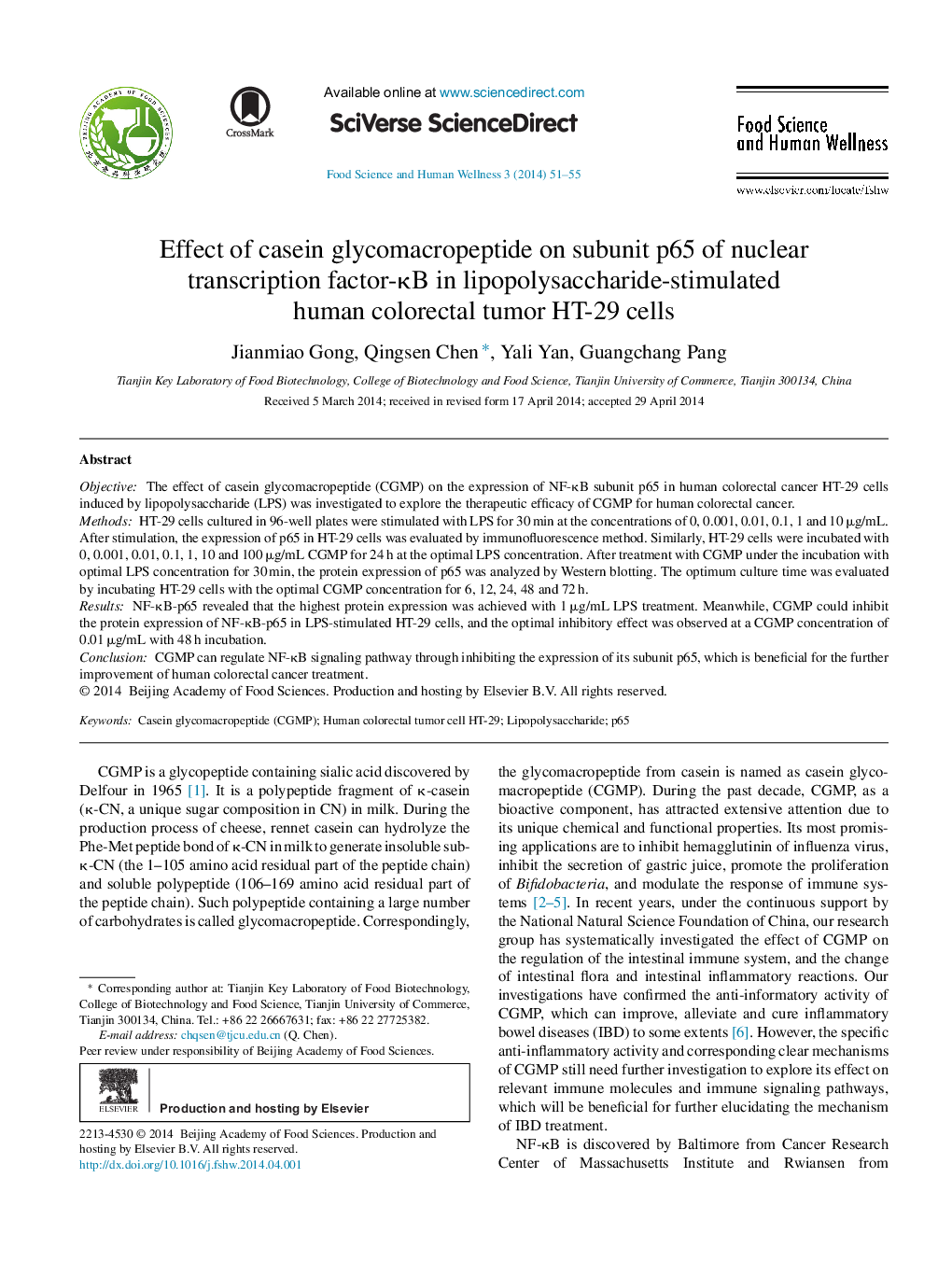| Article ID | Journal | Published Year | Pages | File Type |
|---|---|---|---|---|
| 2691428 | Food Science and Human Wellness | 2014 | 5 Pages |
ObjectiveThe effect of casein glycomacropeptide (CGMP) on the expression of NF-κB subunit p65 in human colorectal cancer HT-29 cells induced by lipopolysaccharide (LPS) was investigated to explore the therapeutic efficacy of CGMP for human colorectal cancer.MethodsHT-29 cells cultured in 96-well plates were stimulated with LPS for 30 min at the concentrations of 0, 0.001, 0.01, 0.1, 1 and 10 μg/mL. After stimulation, the expression of p65 in HT-29 cells was evaluated by immunofluorescence method. Similarly, HT-29 cells were incubated with 0, 0.001, 0.01, 0.1, 1, 10 and 100 μg/mL CGMP for 24 h at the optimal LPS concentration. After treatment with CGMP under the incubation with optimal LPS concentration for 30 min, the protein expression of p65 was analyzed by Western blotting. The optimum culture time was evaluated by incubating HT-29 cells with the optimal CGMP concentration for 6, 12, 24, 48 and 72 h.ResultsNF-κB-p65 revealed that the highest protein expression was achieved with 1 μg/mL LPS treatment. Meanwhile, CGMP could inhibit the protein expression of NF-κB-p65 in LPS-stimulated HT-29 cells, and the optimal inhibitory effect was observed at a CGMP concentration of 0.01 μg/mL with 48 h incubation.ConclusionCGMP can regulate NF-κB signaling pathway through inhibiting the expression of its subunit p65, which is beneficial for the further improvement of human colorectal cancer treatment.
